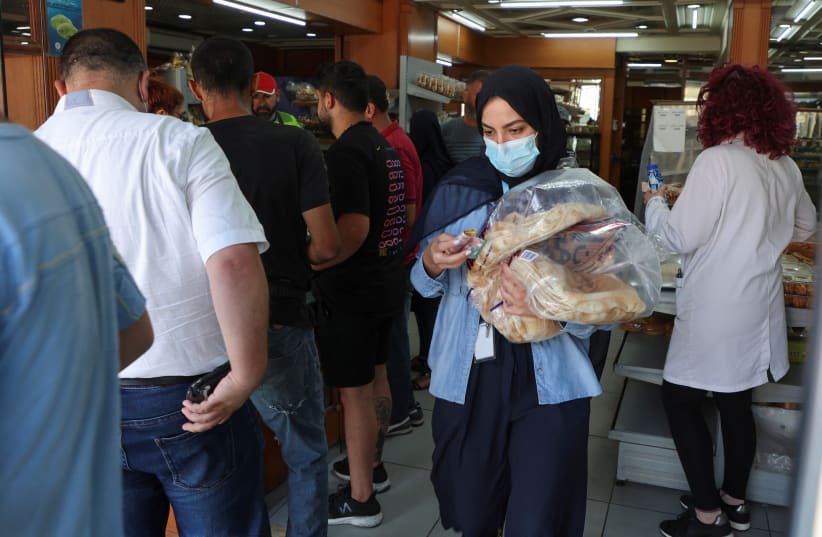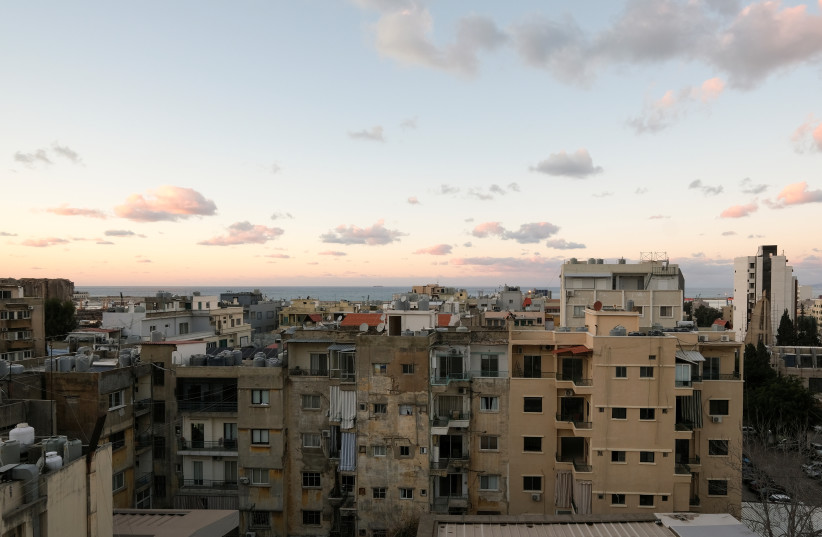The decline of the Lebanese economy has reached the point where public sector employees have declared an open-ended strike since the cost of commuting to work would be more than their salaries.
The Lebanese lira has lost more than 90% of its value, and the monthly minimum wage has dropped from the equivalent of $450 to $24 since 2019 as prices have soared as a consequence of several global and local events.
“It would cost government employees more to come to work than to simply stay at home.”
Mario Keyrouz
“It would cost government employees more to come to work than to simply stay at home,” Mario Keyrouz, a Lebanese financial analyst, told The Media Line.
Russia’s war on Ukraine has put upward pressure on fuel prices worldwide, and it has hit Lebanon even harder, he explained.
As a consequence, the cost of transportation has greatly increased. This, combined with the devaluation of the lira has led government employees to stay home, crippling the entire public sector, Keyrouz said.
“Putting it mildly, the worst is yet to come.”
Charbel Feghaly
Charbel Feghaly, an investment management professional and university lecturer, told The Media Line that after analyzing the change in the country’s balance of payment and in hyperinflation in recent years, many finance professionals say the current crisis is the worst in Lebanon’s history.
However, in his view, “it’s even greater than expected given the level of corruption in the government and the degree of tribalism instilled in the minds of the average Lebanese and in the so-called ‘free’ media.”
Feghaly added that the country has yet to hit rock bottom. “Putting it mildly, the worst is yet to come,” he said.
Just returning to the “flourishing” conditions of 2018 would require continuous annual growth of about 5% over two decades, Feghaly said.
Lebanon's economic crisis
The Lebanese economic crisis took off in October 2019, when citizens took to the streets to protest a government plan to charge 20 cents per day for voice over internet protocol (VOIP) use over social media apps, including WhatsApp and Facebook. The situation has since worsened with the COVID-19 pandemic, the 2020 Beirut port explosion and the consequences of the Russo-Ukrainian war.
“According to United Nations Economic and Social Commission for Western Asia, 82% of Lebanese residents suffer from multidimensional poverty,” Keyrouz said. He added that the country’s gross domestic product dropped from over $50 billion in 2019 to just over $20 billion in 2021.
Feghaly explains that Lebanon is a fragile country and is affected by the recent systematic price hikes for oil and gas. “It is a service-oriented, developing economy in a Bronze Age society without any kind of diversification in production or investment allocation,” he said.
He added, however, that “the current economic crisis is a side effect and not the main problem.”
Political system
Feghaly blames the Lebanese political system for leading the country into the economic disaster.
“Any country that puts demagogues into power who endanger the lives of its intellectuals and treat them as second-class citizens is doomed to fail. Enlightenment is under threat,” he said.
“We need people without double standards and outside the sects who don’t have the audacity to play God over others and who care about what’s right, not about what’s might,” he added.
The core problems in the current system in Lebanon that are holding back the country include the lack of a genuine investigation into the explosion in the Beirut port, the nepotism when choosing central bank employees, the normalization of bribery, the connections between judges and politicians, corruption, and the sectarian political system, Feghaly said.
Keyrouz said it is crucial to change economic policies in order for the country to start heading toward getting back on its feet.
The first step in the right direction, he said, “is to abandon the current monetary policy which is basically printing liras and spending the central bank’s foreign reserves.”
Feghaly agrees. He added that the right personnel should be hired to make decisions regarding the country’s investments.
The government should “hire more Chartered Financial Analysts [CFAs] with integrity as managers, who know how to make optimal investment decisions, rather than invest 70% of the bank’s money in worthless Lebanese bonds,” he said.
The most common demand among the Lebanese people, noted Keyrouz, is to implement reforms that would reduce government counter corruption and to solve the electricity crisis.
Since the beginning of the economic crisis, electricity shortages have been one of the most notable problems in the country. Today, people are compelled to produce most of their electricity with private generators. Due to the soaring cost of fuel, many are left without power for most of the day.
“Many of us have lost the sense of belonging to this country, as emigration has become a regular step in our lives. After all, emigration is an integral part of our economic setup,” said Feghaly, adding that the Lebanese are “too much embedded in the system” and mostly talk about electricity, salaries, removal of garbage and stabilization of the currency.
He stressed that the government employees’ strike has caused politicians to start talking about corruption, and that there are many other issues to be addressed.
“This can be achieved when politicians stop engaging in clientelism, respect human rights, embed freedom from religion in the Lebanese constitution, elevate truth over sensitivity, dismantle the mafias and the militias, and have a banking system that puts clients’ interests above employer interests and the latter above personal interests,” Feghaly said.

